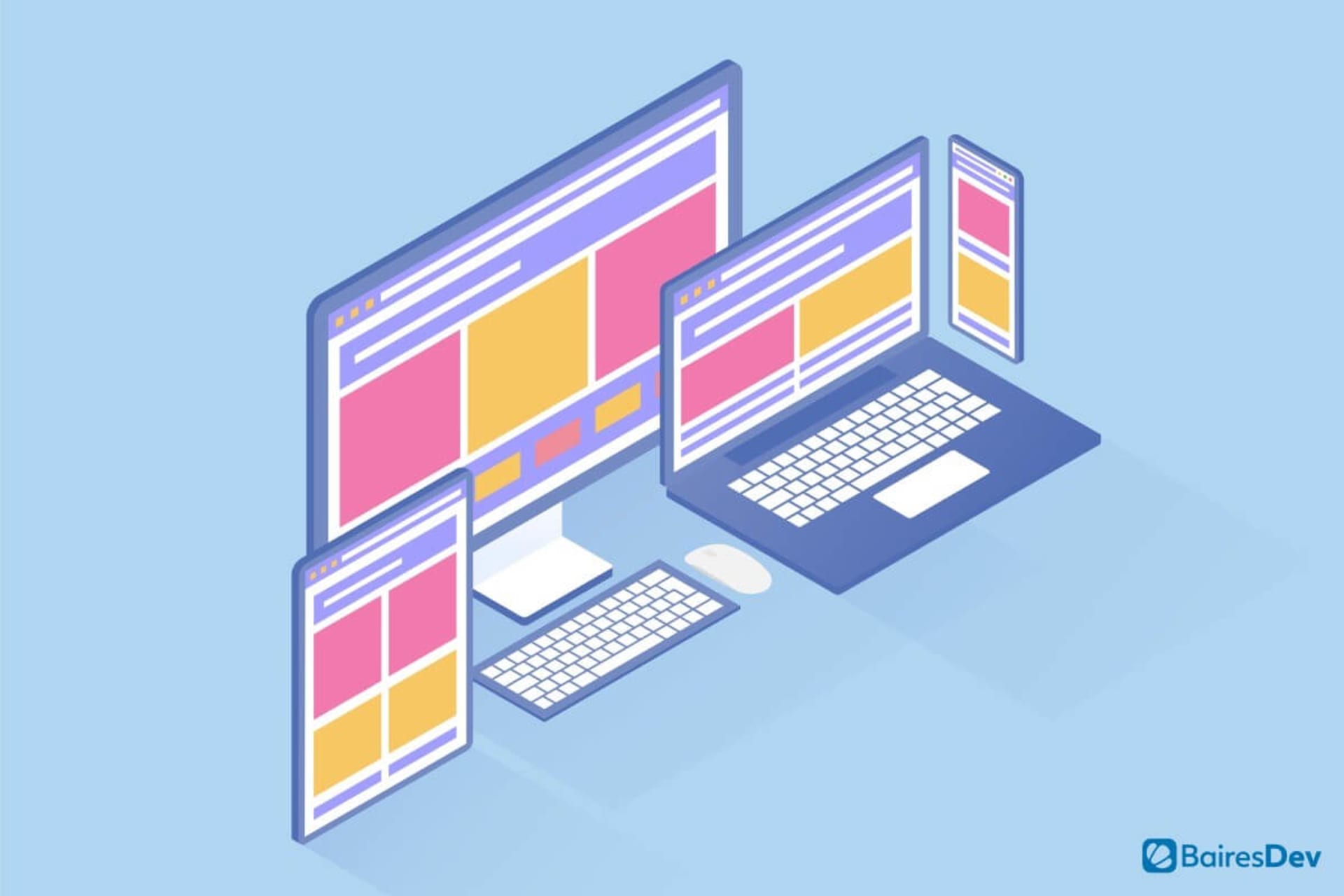In 2020, 61% of all U.S. website traffic came from mobile devices — a 4% increase from 2019. Meanwhile, just over a third of visits took place on desktops.
This probably doesn’t come as a surprise to many users and developers alike, considering how ubiquitous smartphones have become. But even still, desktop devices haven’t been replaced entirely, and that’s why businesses must adapt, making the experience seamless and appealing across multiple types of devices — desktop, mobile, and tablet.
That’s why responsive design has become so important. But what exactly does it mean and what are the benefits of it? Here’s everything you should know.
What Is Responsive Design?
Responsive design is essentially a means of creating a website that looks good and behaves properly across multiple devices, including both mobile and desktop. We’re all familiar with websites that appear distorted on mobile, even if they’re fine on desktop. This is an example of a product with a lack of responsive design.
When websites are built with responsive design in mind, the content fits properly into the frame, regardless of the device you’re using. Navigation is more straightforward, and the layout and appearance are more visually appealing. The content scales accordingly, adjusting to the parameters of the device. Ultimately, the quality is the same from screen to screen, and users won’t notice any major differences.
Benefits of Responsive Design
1. Improved User Experience (UX)
The chief concern about viewing websites across devices is the UX. Without responsive design, sites can be difficult to navigate and appear unattractive and unappealing, with images distorted and elements misplaced. The text is often difficult to read, and users have to scroll ad nauseam to find the right content.
Responsive design addresses these concerns. The design is far more user-friendly and will be more visually and appealing across a variety of devices. Better UX also means that you’re more likely to retain users — otherwise, they might well be tempted to exit your site and go to a competitor’s instead.
2. Efficiency
From a business and developer’s standpoint, responsive design is more efficient than the alternative — the alternative being creating 2 versions on the same website to suit mobile and desktop devices respectively. While it’s somewhat time-consuming to make a website responsive, it’s far more straightforward than building 2 websites with identical content. In today’s age, it simply makes more sense.
From a user’s perspective, this model is also more efficient. Loading time for responsive sites is considerably quicker.
3. Streamlined Maintenance
It’s not only more efficient to create responsive websites from the get-go — it’s also easier to maintain and improve them. Since you’re only working with one website, you can make changes as needed and do it quickly, without having to apply these tweaks to distinct versions on the same site. This, too, will save you a considerable amount of time and effort in the long run.
4. Cost-Effectiveness
In the beginning, setting up a website with responsive design in mind will seem expensive. But the investment pays off. In the end, it will actually be more cost-effective to create a responsive website, not less. Maintenance costs are lower, for one. Plus, you won’t have to pay a developer for the time they would need to spend working on improvements for two websites, just one.
That, of course, is on top of the fact that you’ll drive more traffic to your website, usually translating to increased profit, thanks to having a more attractive site.
5. Better SEO and Indexing
You probably know how important applying search engine optimization (SEO) practices is to your website. Ranking schemas are constantly changing, but responsive design is always critical for improving your SEO. Given how you’re paying attention to the user experience, thus engaging them and prompting them to stay on your pages for longer, you’re also improving your rankings in search engine results pages (SERPs).
Google actually factors responsive design into its algorithm and ranking system, another reason for you to keep it in mind — you’ll boost your rankings.
On a similar note, Google embraces mobile-first indexing, meaning that the search engine is using your mobile layout and overall site as the main means for indexing the website. This, too, will impact your rankings, underscoring the point that the mobile version is critical.
6. Scalability
Businesses grow — hopefully — and with them, so do their websites. As you add content and scale your site, you’ll need a design and format that will adjust seamlessly. Responsive design does just that. Not only do they physically scale to match the devices on which the user is viewing them, but they also easily conform to new and changing circumstances.
Again, because you’re working on a single website rather than multiple versions, you can quickly adjust to different trends and best practices that emerge without investing too much time in scaling the design.
Why Does Responsive Design Matter?
It’s clear that there are numerous benefits to using responsive design in your website development strategy, from cost-effectiveness to efficiency to optimized user experience. Given that your website serves as the face of your organization and products — often the first thing users see — it’s critical that you have the most appealing pages to show consumers.
Responsive design helps usher your website into the modern age, making it attractive from multiple standpoints, including visual appeal and usability. It also demonstrates that you emphasize user experience and have your consumers in mind, ultimately indicating that you’re a business of excellent standing.






